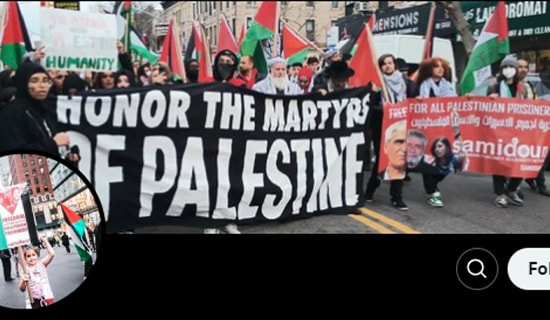On August 7, 2011, Saudi King 'Abdallah, breaking his long silence on the Syrian crisis, said that his country "could not accept the events in Syria," and called upon Syria "to stop the war machine and bloodshed and to act reasonably before it is too late." His statement was perceived as an "historic declaration" and as a shift in Saudi Arabia's policy towards the Syrian regime, after, at the onset of the Syrian unrest, Saudi Arabia had publicly supported the Syrian regime and its handling of the protests.[1]
Thus far, the Assad regime has chosen not to comment officially on the King's declaration, most likely in order to prevent a complete severing of relations with the Saudi kingdom, as happened during the "Cold War" in the Arab world,[2] and especially in the face of the Syrian regime's increasing isolation in the Arab, regional, and international arenas. Instead, as it usually does when wishes to avoid an official reaction, the Syrian regime has settled for expressing its discontent via anti-Saudi articles and reports in the daily Al-Watan, owned by Assad's cousin Rami Makhlouf. The daily urged the Saudi king to examine the state of his own kingdom in terms of democracy and human rights before advising other countries on these matters. It also denounced Saudi Arabia as collaborating with the U.S., and began reporting on demonstrations in the kingdom demanding rights and protesting human rights violations by the Saudi regime.
Saudi Arabia – An Arm of the U.S. State Department
One day after King 'Abdallah's statement on Syria, an article in Al-Watan said: "King 'Abdallah bin 'Abd Al-'Aziz surprised the Syrians late last night with a statement he claimed was aimed at [his] 'Syrian brothers,' but seemed more like an American threat than like a brotherly message. The king ignored the truth about the events, and the proof that his Syrian brothers are subject to a plot that is more than just a verbal [attack]... [The king's] statement did not address the extremist terrorist groups that have been working to undermine the unity of the Arab and Islamic Syria, and made no mention of the elements that are funding and arming these terrorists, some of whom, it has been proved, are receiving orders from [Syrian] sheikhs [encouraging] civil war, who have found shelter in the kng's land [i.e. Saudi Arabia]. This, while the kingdom itself needs the implementation of substantial reforms in its political and social infrastructure before it advises others..."[3]
Even harsher criticism was voiced by columnist Hussein Murtadha, who accused Saudi Arabia of hypocrisy and of collaborating with the U.S. State Department: "Saudi Arabia, whose... soldiers are oppressing the Bahraini people... cannot appear as the defender of democracy and freedom while it undermines the status of women, children's rights, and human rights; while it punishes the opposition, fights terrorism on the surface but supports it in secret; and while it oppresses [members of] religious minorities, arrests them, and executes them. In this situation, any Saudi talk of democracy, freedom, and human rights is received with wonderment and repulsion... How can a country claim that it is concerned for any people when its army is marching to oppress another people, all the while claiming that the Saudi army is 'the strong arm of the Gulf Peninsula Shield Force'... How can Saudi Arabia demand democracy when it is the only country with no constitution or parliament, whose traditional monarchical governing principles contravene any democratic model..."
"The Torch of the Revolution will Soon Pass to Saudi Arabia"
Murtadha claimed that one of the reasons for this Saudi hostility towards Syria is the former's desire to expand its circle of influence and win over Arab public opinion, especially in the face of the rise of Turkish influence in the region.[4]
In order to prove Saudi hypocrisy, the daily began reporting from external sources on severe human rights violations and on violent suppression of popular protests in Saudi Arabia. For example, the daily quoted a report by the Saudi Civil and Political Rights Association, according to which the Saudi General Intelligence Directorate systematically violates human rights to the point of committing crimes against humanity. This apparatus was accused of arbitrary arrests, false accusations against human rights activists, kidnap, and torture.[5]
The daily also reported on violent suppression of protests demanding "legitimate rights" in the Saudi towns of Al-Awamiyah and Al-Qatif. Citing the website Al-Multaqa, it reported that "the Saudi authorities are still using violence against civilians demanding their legitimate rights, and arresting and torturing anyone who makes such demands, with no respect for human dignity."[6] The daily did not mention that the source is a Saudi oppositionist website, and did not present the regime's side of the story.
In another case, the daily published posts by Saudi youths on the social networking site Twitter harshly criticizing the Saudi regime. Among other things, the users accused the regime of "suppressing freedoms in the harshest manner possible" and of "driving away [the country's best] minds and most ambitious [people]" and wondered: "Why do you [King 'Abdallah] always assist foreigners while [your citizens] are poorer?" The daily also quoted Egyptian bloggers that supported the Saudi comments and predicted that "the torch of the revolution will soon pass to Saudi Arabia."[7]
Endnotes:
[1] See MEMRI Inquiry & Analysis Series Report #725 "Gulf and Arab States Break Silence Over Syria Crisis" Gulf and Arab States Break Silence over Syria Crisis
[2] See MEMRI Inquiry & Analysis Series Report #492 "An Escalating Regional Cold War – Part I: The 2009 Gaza War" An Escalating Regional Cold War – Part I: The 2009 Gaza War
[3] Al-Watan (Syria), August 8, 2011.
[4] Al-Watan (Syria), August 21, 2011.
[5] Al-Watan (Syria), August 18, 2011.
[6] Al-Watan (Syria), August 28, 2011.
[7]Al-Watan (Syria), August 29, 2011.




